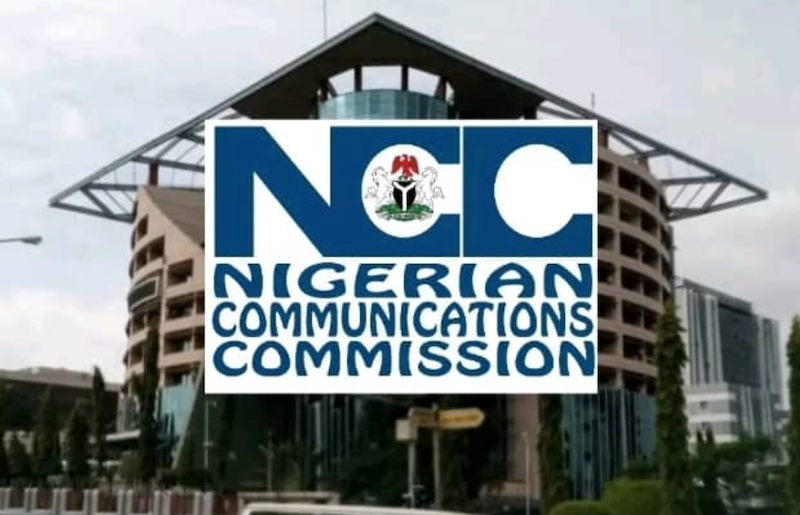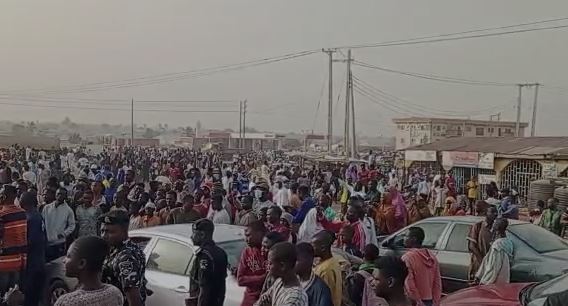On this very day, I want to acknowledge with utmost respect that there could be so many items on President Tinubu’s plate, so I do not, by any means, want to add anything to that mix which could give even an elephant a headache. Uneasy lies the head that wears a crown, they say. Looking around the nation daily, the President will have enough worries to last a lifetime, any addition could fall below acceptable standards of patriotism, albeit outright wickedness.
My self-appointed mission this Wednesday is to help alleviate the President’s headache by pointing to a task that needs to be sorted urgently in order to help realise his administration’s growth projections, just like actually adding to the items on the plate, with a caveat: the newest item needs accelerated treatment.
If words haven’t reached the President yet, I have taken it upon myself to notify him that the Nigerian Communications Commission (NCC) needs his accelerated attention in order to save the entire telecommunications industry, not only the regulator this time, from looming disaster. The regulator is in dire straits and needs urgent constitution of its Board so as to steer it back to the path of reason and performance.
The Nigerian Communications Act 2003 credits the President with the responsibility to appoint a Board for the NCC. This is stated in Section 5 of the Act which says that all the 9 Commissioners shall be appointed by the President of the Federal Republic of Nigeria. The Board shall consist of a Chairman, a chief executive who shall also be the Executive Vice Chairman, 2 Executive Commissioners, and 5 non-executive Commissioners.
The Act further states that Notwithstanding any other provision of this Act, the President shall ensure at all times that there is a duly constituted Board of Commissioners and that there are a minimum of 6 serving Commissioners on the Board at any and all times, made up of – the Chief Executive; 2 Executive Commissioners; and 3 non-executive Commissioners.
In addition, the Commissioners shall be persons of recognised standing, qualification and experience in one or more of the following fields – finance or accounting; law; consumer affairs, telecommunications engineering; information technology, engineering generally; economics; and public administration. They shall be drawn from the 6 geo-political zones subject to the confirmation by the Senate.
Flowing from the foregoing, it is safe to observe that the NCC has not had a Board for over a year even though the Act says that “the Board shall have capacity to make standing orders for the regulator of its proceedings and meetings however, and acts of the Board shall be deemed to be acts of the Commission.”
The Board gives the general direction for the Commission and provides it with a buffer or safety net from the predatory capacity of higher authorities. Unfortunately and quite ironically, the absence of the Board denies the Commission of the variegated experiences of industry elders, scuppers its capacity for high-wired relationships and even the capacity to perform its basic functions. This has not placed the NCC in a good position, leading to aggravated hopelessness and tension within the system. For a regulator, this is almost a death call and gives reason for serious worry.
So, for the NCC, the Board is everything. Under Engr Ernest Ndukwe who initiated the rhythm for telecommunications growth in Nigeria, the Board was headed by former civil servant and compact genie, Alhaji Ahmed Joda. He could walk in any time to see President Olusegun Obasanjo in the Villa and make his demands. In the days of Dr Eugene Juwah, who answered the final call in October 2021, the Board was headed by Mr Peter Egbe Igho, a former Permanent Secretary, demure but also had his ways. During the time of Prof. Umar Garba Danbatta, the Board was headed by Chief Olabiyi Durojaiye, venerated lawyer and former Central Bank Director, a pro-democracy activist and a Senator of the Federal Republic of Nigeria. At his age, he was enthusiastic about the Commission but was harassed out of office in contravention with the provisions of the Act by former Minister of Communications and Digital Economy, Dr Isa Pantami, and his collaborators, who immediately activated his gameplan to appoint his lackey, Prof Adeolu Akande, who was NITDA Chairman at the time Pantami was Director General.
Immediately, the NCC suffered jeopardy. The Board adorned the costumes of a puppet and couldn’t even take simple decisions without the imprimatur of the Minister. Even staff promotions that was the prerogative of the Board was remotely superintended. All the gains made in over two decades were ruined by the ignorance and presumptions of a Board that failed to reconcile its activities with the provisions of the Act and the aspirations of the workforce. It was an apocalypse for the NCC which has not been able to fight its way out of such misbegotten fate.
A Director, who didn’t want to be named, summarised the situation as follows: “The last Board was more of procurement officers, no experience. Their meetings were about contracts. The only good Board under the last administration ended with the sacking of Senator Durojaiye.”
Mr President, the NCC needs a Board. Urgently. Somebody around you could say, you appointed two Executive Commissioners in February this year, in the persons of Engr Abraham Oshadami, Technical Services and Rimini Makama for Stakeholder Management. Without revisiting the incongruity of the appointment of the latter, let me point out that the appointment of two Executive Commissioners with the Executive Vice Chairman (EVC), Dr Aminu Maida, only provides an Executive Management and not a Board.
The Board always reserved a place for experience and institutional knowledge or memory, which are in deficit at the moment. Only Oshadami offers that capacity and the other two were appointed from ancillary industries sans core experience in telecoms operations.
In this column this writer wrote on February 28, “Maska, who yielded grounds for Oshadami to step in, was homegrown, just like his successor. They epitomise the lore of the regulatory institution which often provides the compass for the regulator to steer the industry. After a troubling period of regulatory capture under the Muhammadu Buhari administration, the regulator needs a genuine reload for the challenges and excitement ahead.”
At the moment, there is no reload at NCC. Instead, the stories we hear from that place are intemperate languages, scheduling of appointments to see a coworker in the form of an executive commissioner, or even a general disdain for the tradition of the institution which thrived on love and great interpersonal relationships. All the good memories at the institution have nearly been wiped by some level of cockiness and uncouth behaviours that make the office environment toxic.
The President must act fast to stem the drift at the NCC which at the moment is not in a good place. Apart from the internal rancour and apprehension, this writer gathered that the regulator has lost so much steam and respect that some operators are resorting to higher authorities to meet their regulatory needs. This never happened at NCC and doesn’t portend good for the Commission. It doesn’t also portend good for a nation that once produced one of the best regulatory agencies in the world.
Apart from the most recent Board which nearly damaged the Commission, previous Boards were resolute in tackling the challenges of the regulator. The times demand that the President constitutes a Board peopled with men and women of sterner stuffs, people cast in the similitude of Joda and Duroaiye (both of them have returned to their Maker with good reports) who could look at the President in the face and make demands that can reposition the telecommunications industry or argue about funds that must be retained by the regulator. Joda did that always.
And there are so many things the Board should be talking about. For instance, this writer is aware that there is a lot of disgruntlement about the 50 percent which the Government collects from the Annual Operating Levy (AOL) which operators pay to the Commission. From the balance, the Commission, a source informed, will still have to fund the Universal Service Provision Fund (USPF), Nigeria Data Protection Commission (NDPC) and even some of its own activities. This development has left the NCC in rags and in tatters and has rendered the agency incapable of carrying out even some key functions like monitoring – to ensure operators are not carving out little empires for themselves outside the law.
Mr President, the NCC needs a strong Board to tackle its internal crisis and manage other stakeholder expectations, and also be able to confront you with challenges of the industry where exigent interventions are required of your esteemed office.
The importance of the industry rests on the evaluation of one Director who reasoned that “Telecom is the platform on which other organisations run. Nobody wants to watch that industry die.”








